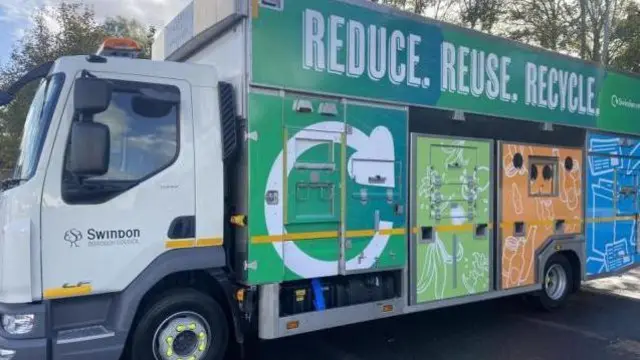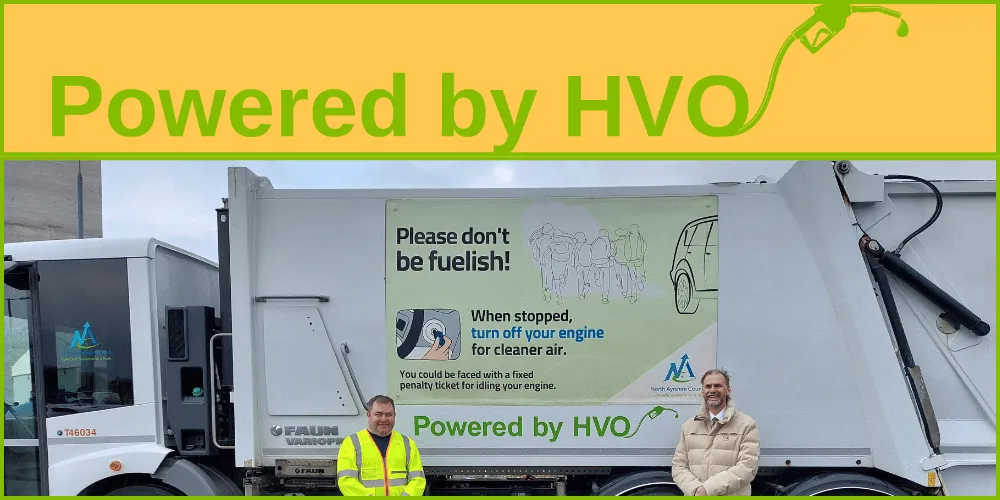Cutting Council Emissions with Vegetable Oil: Swindon’s Clean Fuel Approach
A recent report by Swindon Borough Council outlines a bold plan for a major council emissions cut by switching its vehicle fleet to hydrated vegetable oil (HVO). If implemented, the move could reduce carbon dioxide emissions by 1,703 tonnes annually — an impressive 81% reduction in the fleet’s output.

Although this sustainable move could increase annual fuel costs by up to £150,000, council officials believe the environmental benefits far outweigh the financial implications.
“This transition will contribute to making Swindon greener and better,” the report stated, highlighting the council’s commitment to climate action and innovation.
Understanding HVO: A Key to Reducing Council Emissions
Hydrated vegetable oil is a renewable, low-emission alternative to conventional diesel. It is produced by adding hydrogen to vegetable oils, used cooking oil, and animal fats, while simultaneously removing oxygen and other impurities. This refined fuel can be used in existing diesel engines without the need for significant mechanical modifications.
HVO offers several advantages:
- Lower CO2 emissions
- Biodegradable and non-toxic
- Reduced particulate matter and nitrogen oxide emissions
- Improved cold-weather performance compared to traditional biodiesel
These attributes make it an increasingly attractive solution for municipalities aiming to meet their net-zero or climate neutrality goals.
Swindon’s Environmental Vision: Driving a Council Emissions Cut
The move towards using vegetable oil to cut council emissions aligns with Swindon’s broader environmental strategy. Local authorities are under increasing pressure to reduce carbon output, particularly from municipal fleets that contribute significantly to urban pollution.

According to the council report, over 1,700 tonnes of CO2 could be saved annually by replacing traditional diesel with HVO across all suitable vehicles. This would contribute directly to Swindon’s climate action goals, supporting the UK’s broader 2050 net-zero emissions target.
Financial Implications: The Green Trade-Off
While the environmental case for HVO is compelling, the economic aspect is more complex. The switch could cost Swindon Borough Council up to £150,000 more per year in fuel expenses.
Despite the cost increase, many councils across the UK are exploring similar transitions, viewing them as long-term investments in sustainability. Reducing emissions also brings public health benefits, including improved air quality and reduced healthcare costs related to pollution.
Moreover, as demand for sustainable fuels grows, economies of scale and government incentives may eventually lower prices for HVO.
Council Emissions Cut: Compatibility and Implementation Plan
One major advantage of HVO is its drop-in compatibility with existing diesel engines. This eliminates the need for expensive upgrades or retrofitting.
Fleet vehicles, including refuse trucks, council vans, and transport service vehicles, can switch to HVO with minimal disruption. This practicality makes the fuel a realistic choice for municipal fleets looking for a swift sustainability boost.
The report emphasizes a phased rollout, prioritizing vehicles that consume the most fuel and are easiest to convert. A pilot program could be introduced to evaluate performance and monitor emissions savings in real-time.
Global and National Trends in HVO Use
The use of vegetable oil to cut council emissions is part of a growing international trend. Scandinavian countries like Sweden and Finland have already integrated HVO widely into their transport sectors.

In the UK, cities such as Birmingham and Bristol are piloting similar programs. Nationally, there’s increasing interest in renewable diesel as part of local government decarbonization strategies.
The British government has also indicated its support for renewable fuels through various grants and carbon credits, which could support Swindon in this initiative.
Environmental Impact and Public Health Benefits
Aside from reducing carbon emissions, switching to HVO also lowers emissions of harmful pollutants, such as:
- Particulate matter (PM)
- Nitrogen oxides (NOx)
- Sulphur oxides (SOx)
These pollutants are linked to respiratory diseases, cardiovascular conditions, and poor urban air quality. Cleaner fuel directly improves the health and wellbeing of Swindon’s residents, particularly vulnerable populations such as children and the elderly.
Long-term, these improvements could translate into lower public health spending and improved life expectancy for the community.
Challenges and Considerations
Despite its promise, adopting HVO is not without challenges. Key considerations include:
- Supply chain security: Can HVO be sourced reliably year-round?
- Cost fluctuations: How will global demand affect pricing?
- Waste oil sourcing: Is there enough waste oil to meet demand sustainably?
The council also needs to consider how the transition might affect vehicle warranties, maintenance costs, and operational training.
Stakeholder Perspectives
Public reaction to sustainability initiatives like these is generally positive, but transparent communication is essential. Stakeholders — including residents, council staff, and local businesses — should be informed about:
- The environmental benefits
- Expected costs and trade-offs
- Long-term goals for cleaner, greener transport
Community engagement can help ensure broad support and identify potential issues early in the rollout process.
A Step Toward a Greener Swindon
Swindon Borough Council’s proposal to use vegetable oil to cut council emissions demonstrates leadership in tackling climate change at the local level. While the financial cost is notable, the environmental and public health benefits are profound.

If successful, the initiative could serve as a model for other UK councils, proving that innovative, sustainable fuel solutions are viable, even in mid-sized municipalities.
Vegetable Oil as a Viable Climate Solution
As the climate crisis intensifies, cities and towns must explore every option to reduce their carbon footprints. The Swindon proposal shows how vegetable oil can serve as a powerful tool in local climate action, cutting emissions without requiring massive infrastructure changes.
With proper implementation, public engagement, and support from national bodies, this initiative could help pave the way for a cleaner, healthier, and more sustainable urban future.




